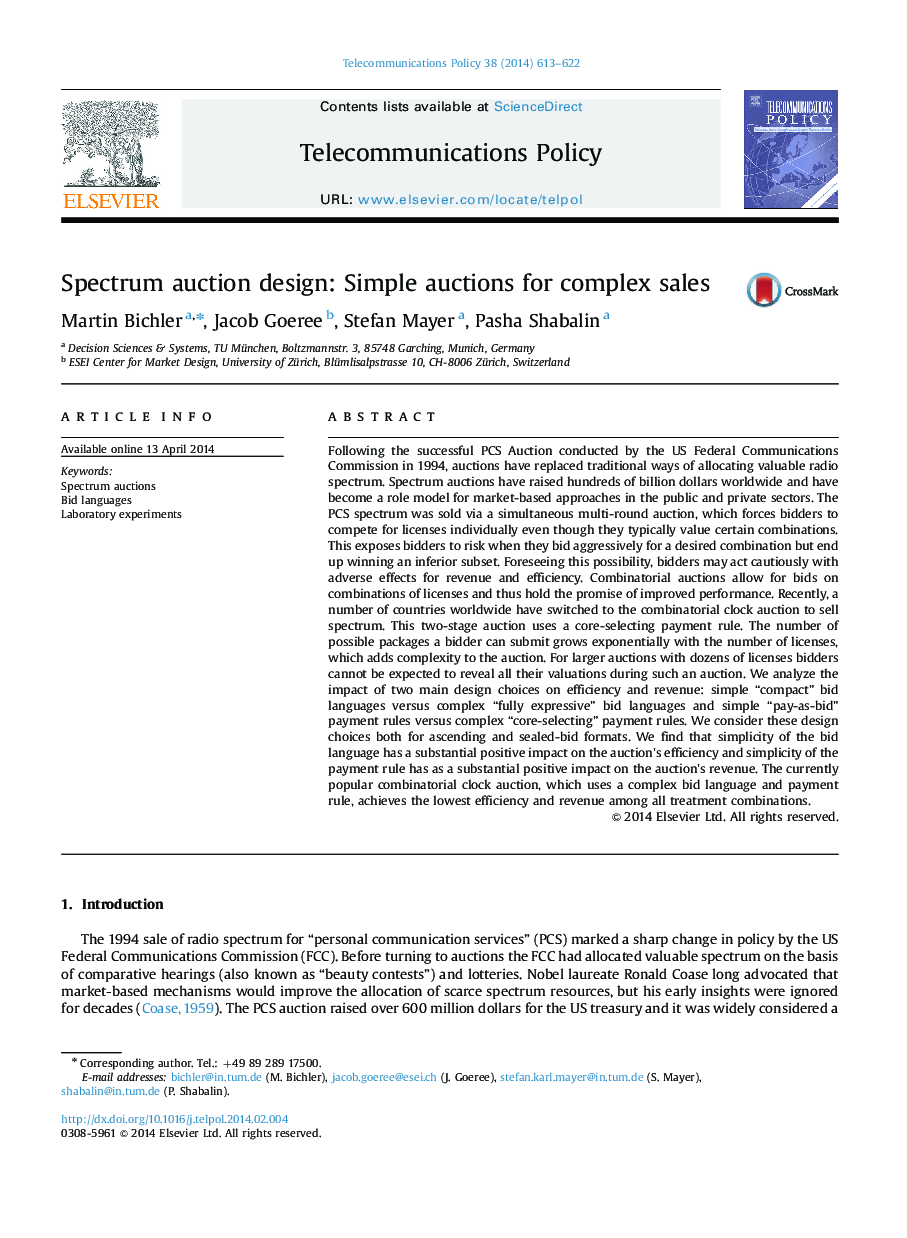| Article ID | Journal | Published Year | Pages | File Type |
|---|---|---|---|---|
| 556519 | Telecommunications Policy | 2014 | 10 Pages |
•We analyze simultaneous auctions and combinatorial auctions for spectrum sales.•We focus on payment rules and bid languages used in spectrum auction design.•Compact bid languages recover efficiency losses of fully combinatorial languages.•Pay-as-bid payment rules lead to higher revenue than core-selecting rules.
Following the successful PCS Auction conducted by the US Federal Communications Commission in 1994, auctions have replaced traditional ways of allocating valuable radio spectrum. Spectrum auctions have raised hundreds of billion dollars worldwide and have become a role model for market-based approaches in the public and private sectors. The PCS spectrum was sold via a simultaneous multi-round auction, which forces bidders to compete for licenses individually even though they typically value certain combinations. This exposes bidders to risk when they bid aggressively for a desired combination but end up winning an inferior subset. Foreseeing this possibility, bidders may act cautiously with adverse effects for revenue and efficiency. Combinatorial auctions allow for bids on combinations of licenses and thus hold the promise of improved performance. Recently, a number of countries worldwide have switched to the combinatorial clock auction to sell spectrum. This two-stage auction uses a core-selecting payment rule. The number of possible packages a bidder can submit grows exponentially with the number of licenses, which adds complexity to the auction. For larger auctions with dozens of licenses bidders cannot be expected to reveal all their valuations during such an auction. We analyze the impact of two main design choices on efficiency and revenue: simple “compact” bid languages versus complex “fully expressive” bid languages and simple “pay-as-bid” payment rules versus complex “core-selecting” payment rules. We consider these design choices both for ascending and sealed-bid formats. We find that simplicity of the bid language has a substantial positive impact on the auction׳s efficiency and simplicity of the payment rule has as a substantial positive impact on the auction׳s revenue. The currently popular combinatorial clock auction, which uses a complex bid language and payment rule, achieves the lowest efficiency and revenue among all treatment combinations.
